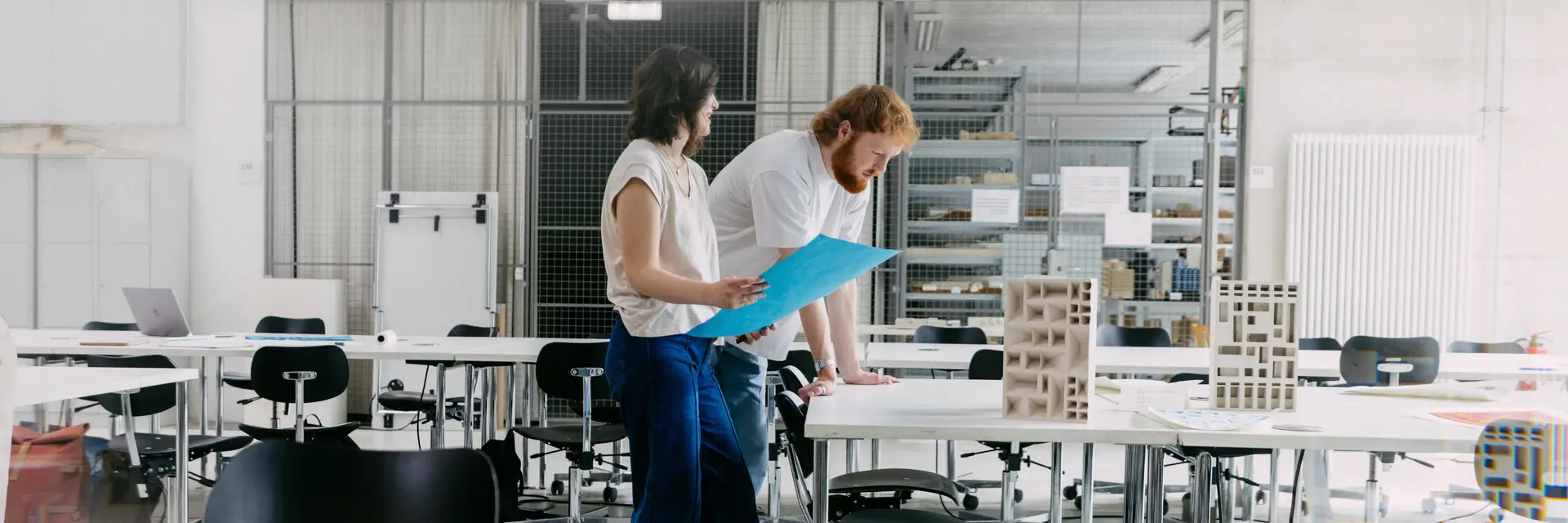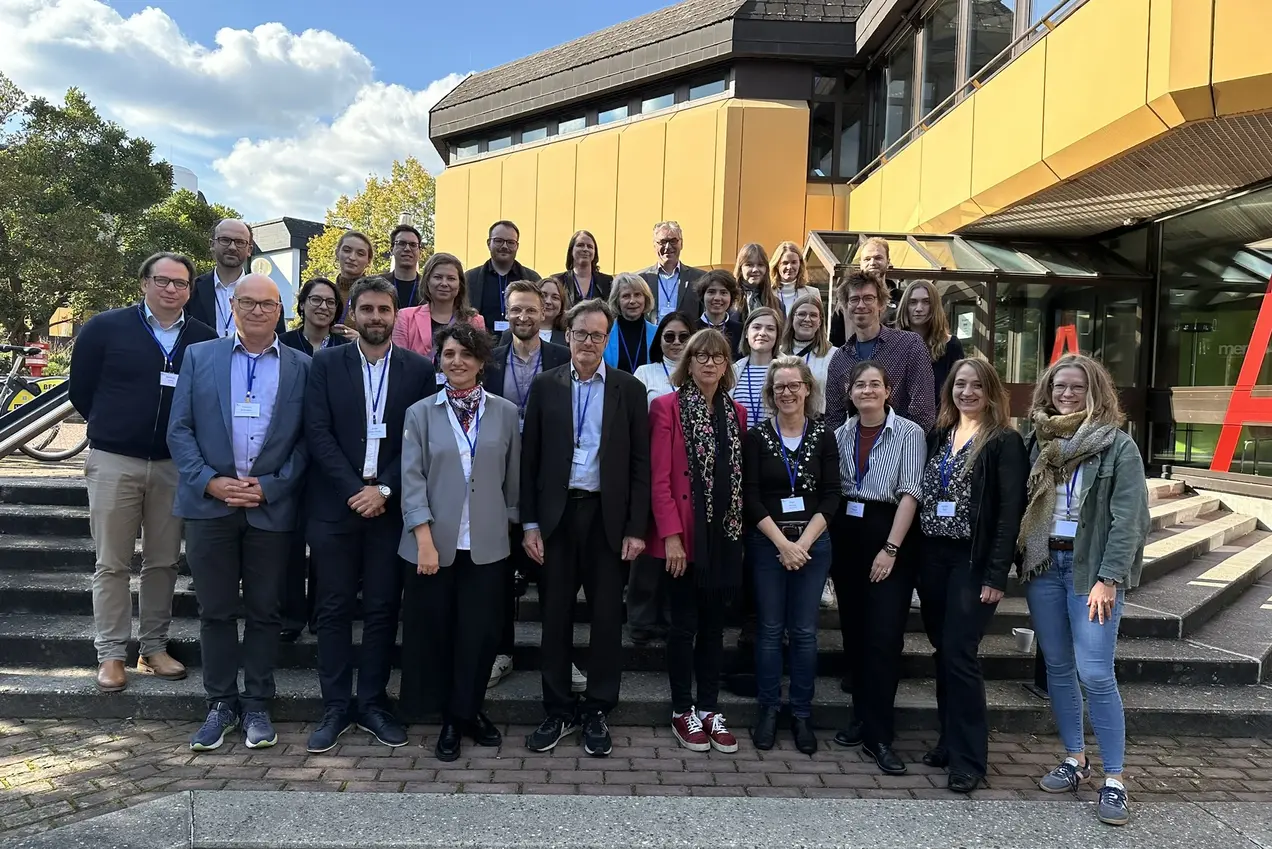On October 1-2, 2025, Hochschule RheinMain hosted the Annual Meeting of the German UNESCO Chairs Network, organized by the UNESCO Chair on Historic Urban Landscapes and Heritage Impact Assessments with Prof. Dr. Michael Kloos (Chair Holder) and Dr. Merve Demiröz-Torun (Chair Coordinator).
Under the title "Innovation for a Sustainable Future – The Influence of German UNESCO Chairs on the SDGs", the aim of the conference was to discuss, with a focus on the concept of impact, how universities and the German network of UNESCO Chairs can make a visible contribution to sustainability in and through higher education.
In addition to Friederike Hansell (Head of UNESCO World Heritage Coordination at the Federal Foreign Office) and Dr. Marlen Meißner (Head of the Heritage, Nature, and Society Department at the German Commission for UNESCO), around 40 participants from all 13 UNESCO chairs at German universities took part.
The two-day event opened with welcoming remarks by Prof. Dr. Christian Schachtner (Vice President for Education and Sustainability, HSRM), Prof. Dr. Matthias Kowald (Vice Dean, Faculty of Architecture and Civil Engineering, HSRM) and an introduction by Prof. Dr. Michael Kloos. Subsequent sessions reflected on the collective impact and visibility of German UNESCO Chairs in advancing sustainability in and through higher education.
The Wiesbaden UNESCO Chair presented its current activities in applied research and teaching, particularly on the topic of impact assessments. In this context, Baharak Ashrafi, a doctoral student at the UNESCO Chair in cooperation with RWTH Aachen University, presented her dissertation, which aims to support sustainable urban development with an integrated approach to impact assessments. Student representatives, Hjördis Dall and Kalle Trappe, presented a project on risk assessments of wind turbines from the Master's program Sustainable Heritage Conservation (M.Sc.).
Later, Prof. Dr. Thomas Schröder outlined plans for the next international meeting in Dortmund (2026), continuing the network’s joint reflection on impact. A series of five-minute ´´Chair Pitches´´ allowed each UNESCO Chair to present its current approaches and impact related to sustainability and the SDGs, providing an overview of the network’s diversity and commitment.
Perspectives and outlook
Day two was marked by the interdisciplinary game ´´COLLAB - Postcolonial Teaching and Research´´ where young researchers and student representatives also actively engaged in a collaborative game and discussion on postcolonial perspectives in education and research.
The meeting concluded with a plenary discussion on measuring and communicating the network’s impact, and the election of new spokesperson: Prof. Dr. Julius Heinicke, succeeding Prof. Dr. Alexander Siegmund, will share the role with Prof. Dr. Christine Volkmann for the coming term.
Overall, the meeting provided an important bridge between last year's international meeting of UNESCO Chairs in Lüneburg and the next international meeting, planned for 2026 in Dortmund, which will be attended by UNESCO Chairs from Germany and abroad.

